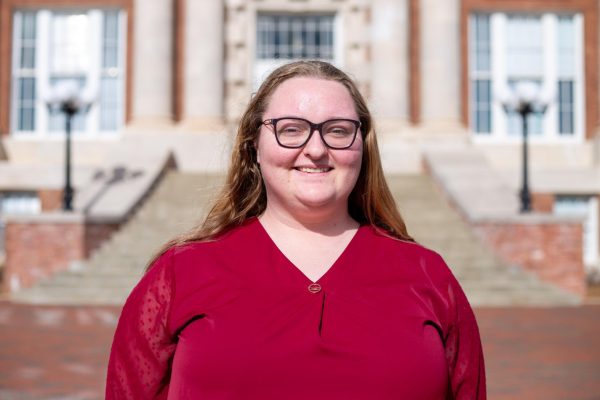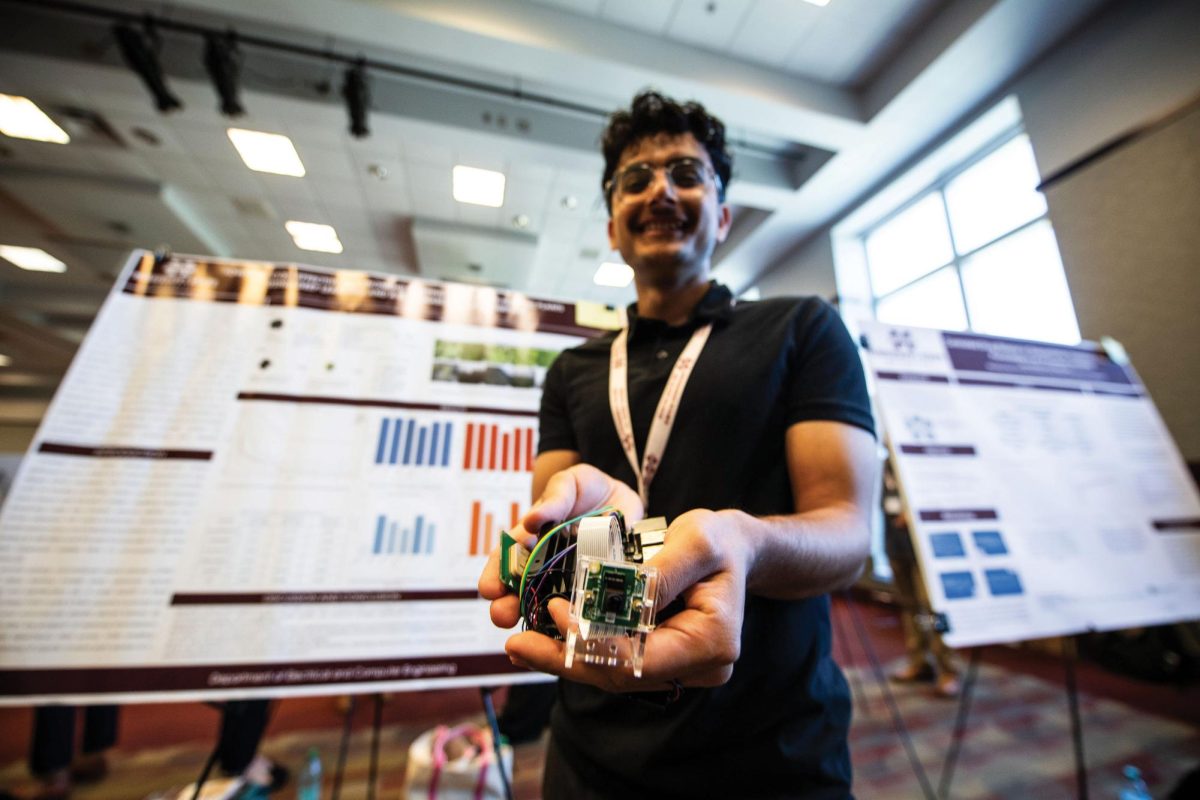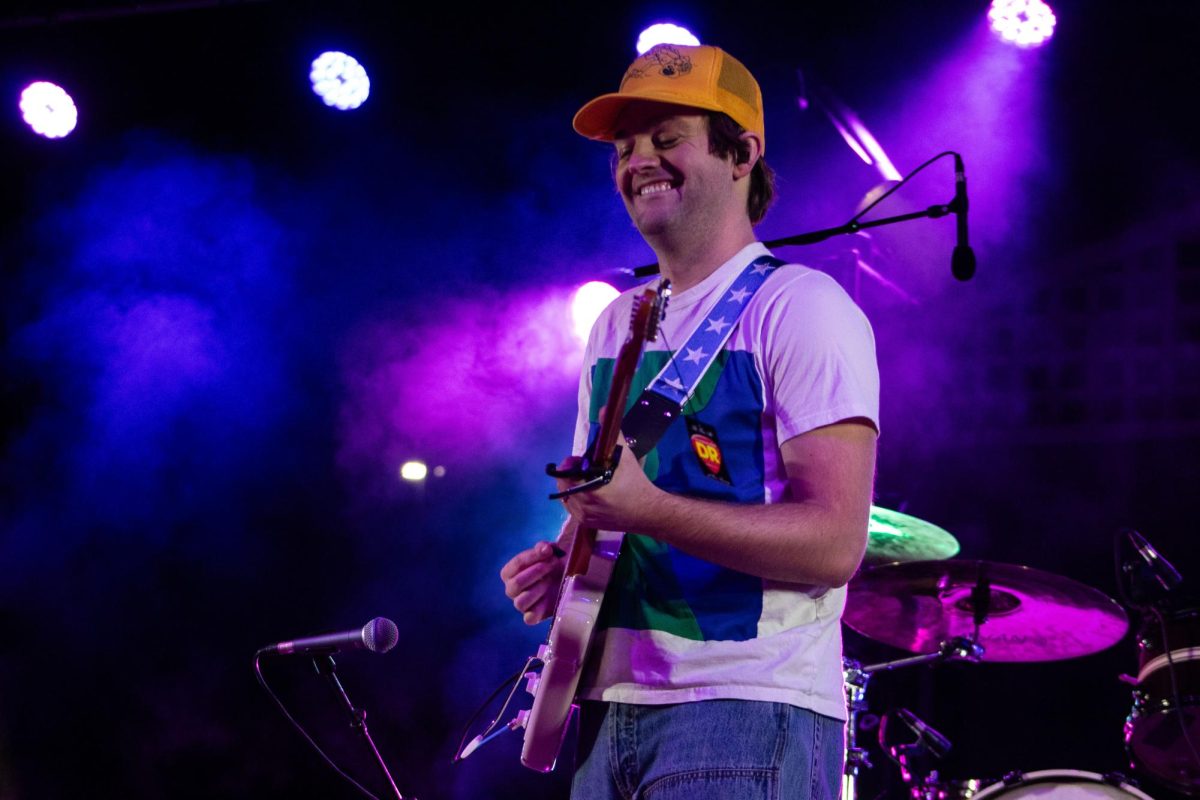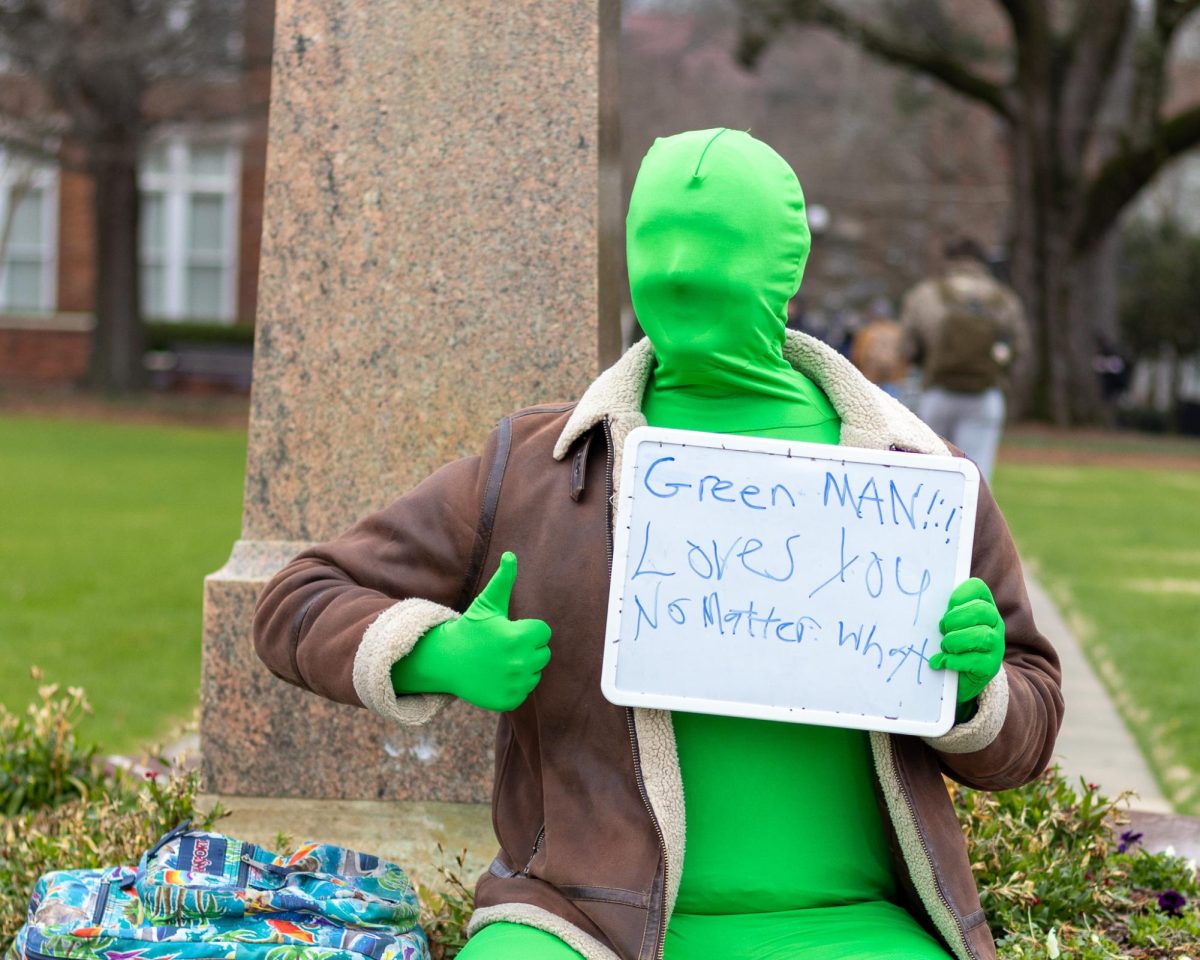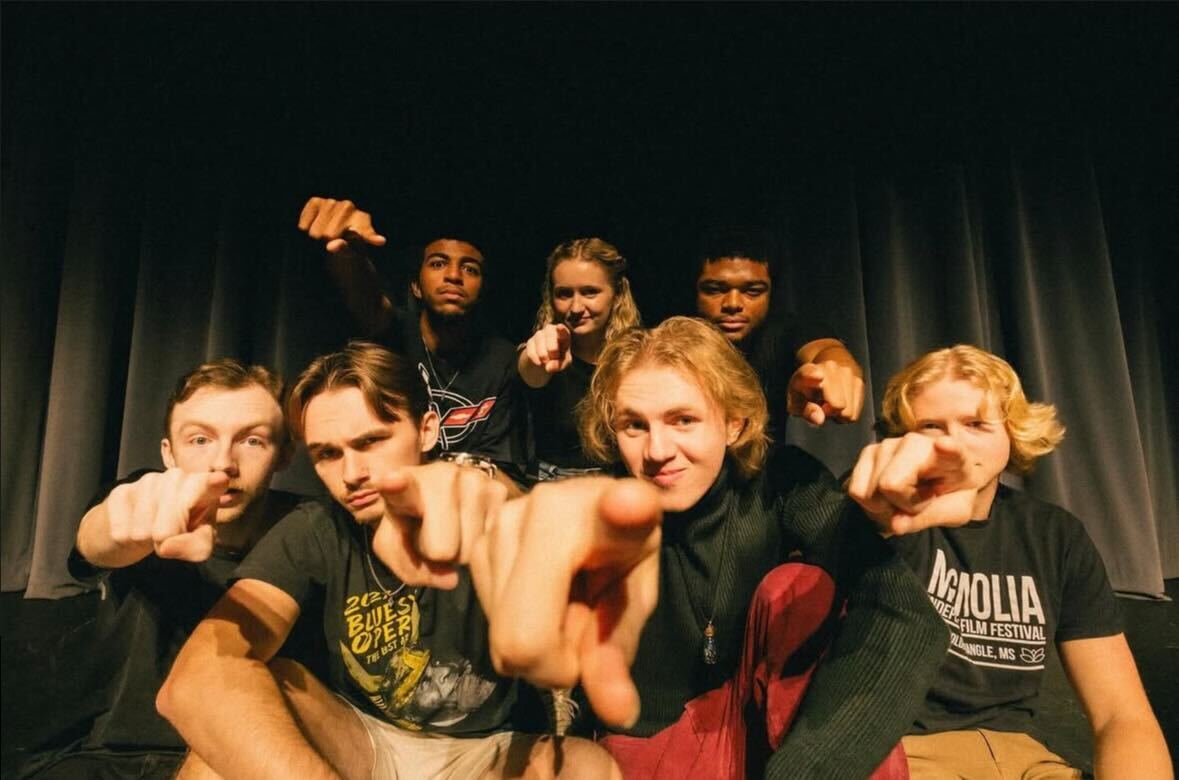At 7 p.m. on Monday nights, student members of Round Table at Mississippi State University meet in Old Main to verbally duke it out in what may as well be an oral “Fight Club.”
Perhaps it is not that severe, and it is certainly talked about, but the concept is similar. For each meeting the club has, a topic is chosen, ranging from “Does a higher being exist?” to “Utilitarianism is the best moral philosophy,” and two members go head-to-head in making their cases for their opposing stances. Sitting at tables forming a circle — hence the club name — the two speakers face one another while surrounded by their colleagues. After their initial addresses, the floor is opened for questions and eventually collaborative discussion.
On Nov. 11, Nicolas Neal and Tanner Marlow debated the idea that “Free will does not exist.”
Neal, a junior triple majoring in philosophy, economics and political science, took an affirmative stance, arguing that free will is a false concept. Utilizing a hand-drawn diagram that was projected behind him, Neal began by defining “free will” before building his case, talking about the principles of cause and effect, the ability to cause multiple effects with one action, the concept of spontaneity, the idea that we respond to our circumstances and ending with an examination of neurophilosophical examples.
Marlow, a senior agronomy major and current president of Round Table, faced a significant challenge in opposing Neal, but he took the summons with grace, launching his own campaign in favor of free will’s existence. Marlow built his case on the first-person experience of choice, the sense of agency and autonomy, the role of reflection in self-control, neuroscience, quantum mechanics and the inability to definitively prove predetermination, the alternative to free will. He also made an interesting case about the principles of ethics and the justice system being reliant on an assumption of personal control.
The meeting then opens up for other members to ask questions and share their own thoughts on the topic, as inspired by the arguments made. The floor is also available for the speakers to address one another. After the discussion, each speaker delivers a closing summary statement, and, unlike “Fight Club,” there is no winner. Instead, the focus shifts to preparing for the next week’s meeting. Topic ideas are suggested and voted on by Round Table members. Speakers for each side volunteer and begin their prep for that argument.
As several members of Round Table emphasized, this was not necessarily the most normal of their meetings, as most speakers do not have diagrams or seven-point outlines for their arguments. However, Neal and Marlow both come from formal debate backgrounds, which likely influenced their approaches.
Dustin Gavins, a junior studying industrial engineering and a member of Round Table, echoed this when speaking about his enjoyment of the club.
“If you want to learn more about politics and general knowledge topics,” Gavins said, “and want to get active on campus, Round Table is a great way to get started. It is fun and laid back!”
Round Table meets weekly to discuss a variety of topics, with past topics including universal healthcare, legalizing euthanasia, unethical experimentation, the development of artificial intelligence, the existence of a higher power, and of course, free will.
If given the chance to pick an ideal topic to debate, Marlow was immediately drawn to his field of study.
“I would probably pick something like ‘Deforestation should be taken more seriously,’” Marlow said.
Neal shared that he would pick a topic related to abortion, while Gavins would like to discuss the crisis in Gaza.
Round Table is open to new members in addition to casual observers, with their final meeting of the semester taking place Monday, Dec. 2.



